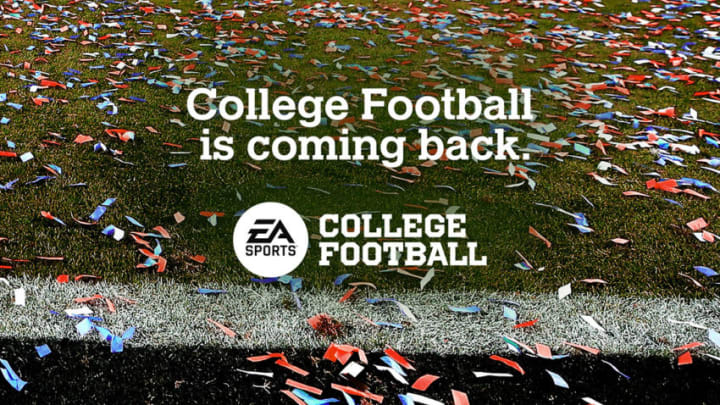When EA Sports announced the return of its college football video game franchise — previously titled NCAA Football, but now referred to as EA Sports College Football — the publisher specifically stated that the game would not include “student-athlete names, images and likenesses.” The reason for this was clear, amateur athletes in college at the time of the announcement could not be paid for the use of their name or likeness.
Fast forward a couple of months, and the landscape around college football has changed dramatically. A Supreme Court ruling led to the NCAA changing its own policy and on July 1, student athletes were allowed to be compensated for the user of their name, image and likeness (NIL).
For the first time, players were able to actually earn money for themselves. Some of them took to Twitch to start up a channel and earn ad money. Florida State’s McKenzie Milton and Miami’s D’Eriq King actually co-founded their own company, Dreamfield. Others sought individual sponsorship opportunities.
For the video game world, it’s a game-changer for the potential of EA Sports College Football. It now means EA can pay student athletes for use of their name, image and likeness in their video games. In an official statement regarding the updated NCAA NIL policy, EA said:
"“We are watching the recent developments regarding student-athlete name, image and likeness very closely. It’s still very early stages at this point, and we plan to explore the possibility of including players in EA SPORTS College Football. For now, our development team is focused on working with our partners at CLC to ensure the game authentically showcases the great sport of college football and the more than 100 institutions signed on to be featured in our game.”"
While EA has already obtained the licensing rights for more than 100 institutions, until they get the NIL rights from players, the ones featured in the game will just be generic, no-named or fictional players. In the past, EA had skirted the rules by not included player names and instead used numbers to identify players; however, the games use of numbers, skill sets and general appearances of players without compensating them resulted in a antitrust class-action lawsuit that ultimately resulted in EA Sports and CLC having to pay $40 million. It was the end of the NCAA Football video game franchise until it was just recently revived.
What this new NCAA NIL policy means is that EA is now free to negotiate with college athletes — either collectively or on an individual basis — for the rights to use their name, image and likeness in the upcoming games. I’m hoping that EA is able to work out some sort of large scale detail with all (or most) of the amateur athletes. I think it’d be weird to have a few marquee players as the only ones featured and named within the game.
I’m not sure how this would work out financially but hopefully some sort of deal is reached so that every player in college football can be included in the game. I’m guessing EA will come up with some sort of collective deal that will pay athletes who opt-in a bit of money. Those who don’t won’t be featured in the game. Any rosters that come up short will simply be comprised of generic players. But this is just my guess.
More from App and Gaming News
- Cyberpunk 2077 Update 2.1: Last major update released
- GTA 6: Who is Lucia and what is her role?
- Sonic Dream Team review: A welcome surprise to Apple Arcade
- Is GTA 6 coming to PC at launch in 2025?
- GTA 6 trailer arrives early, confirming 2025 release: Watch it here!
It’s entirely possible that some of the more well-known college athletes who play for premiere programs could demand a larger share of the pie. Perhaps EA will negotiate with them on an individual level.
I just don’t envision another way. I highly doubt EA is going to talk and negotiate with every individual player in college football. To be perfectly blunt, the value they’d bring in on an individual basis wouldn’t be worth it for EA. Players at smaller schools would be better off negotiating collectively.
According to leaked documents, EA is targeting a 2023 release for the first EA Sports College Football game. That gives EA a bit of time to see how all of this NIL stuff unfolds before they have to start negotiating.
